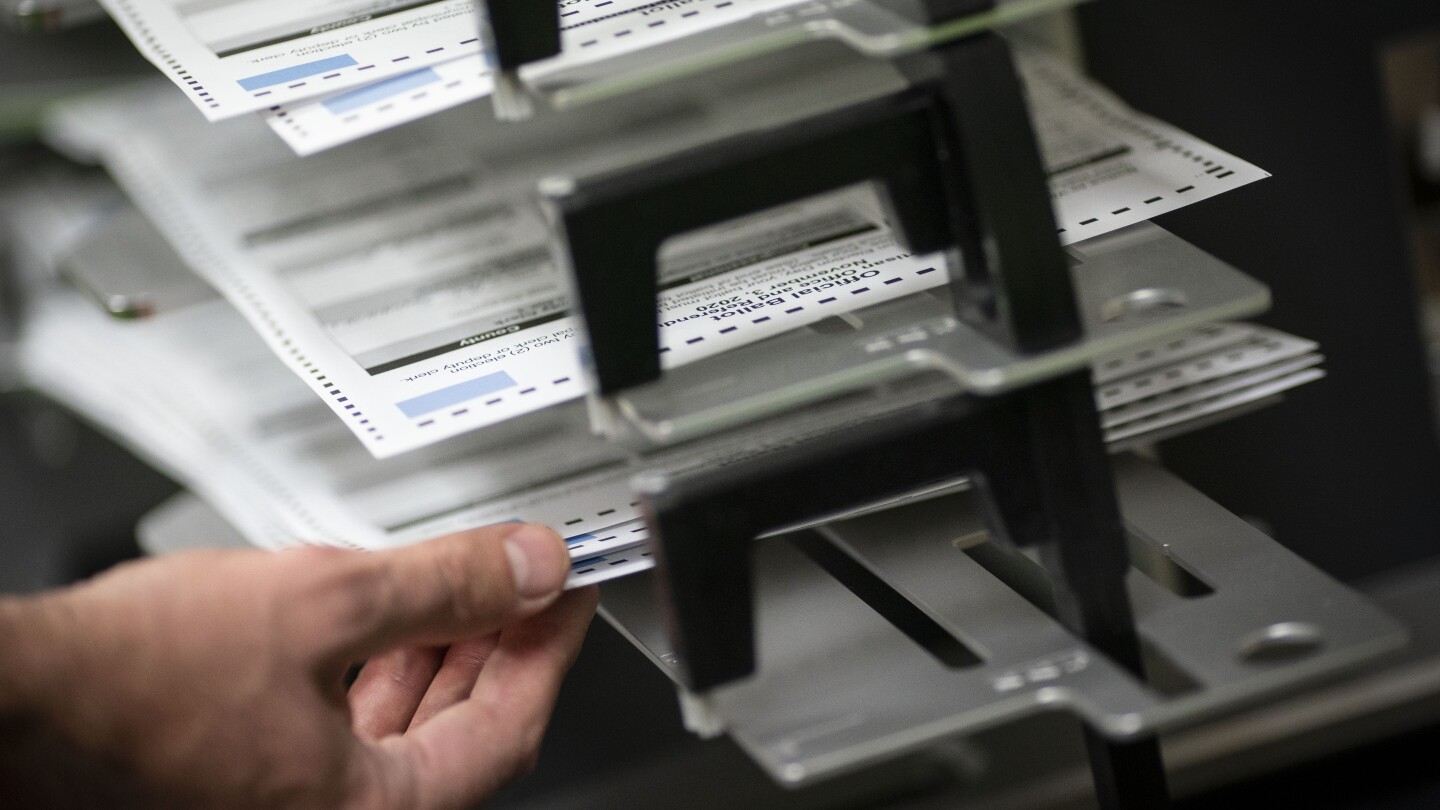MADISON, Wis. (AP) — Wisconsin’s Democratic attorney general on Monday opposed a request to allow people with disabilities to vote electronically from home this fall.
Attorneys for Attorney General Josh Kaul told Dane County Circuit Judge Everett Mitchell during the hearing that the measures would create confusion and security risks, and that state election officials don’t have time to train hundreds of local clerks how to implement the changes before the November presidential election.
“This court cannot change election rules right now, regardless of how difficult or easy the changes might be,” Assistant Attorney General Carla Keckhaver told the justices.
The hearing is part of a lawsuit filed in April by the Wisconsin Disability Rights Association, the League of Women Voters and four people with disabilities, who argue that their right to a secret ballot is violated because people with disabilities, many of whom cannot cast a paper ballot without assistance.
The plaintiffs are asking Judge Mitchell to allow individuals with disabilities to request and cast absentee ballots electronically using devices that they can read and write on their own. They also want the judge to allow individuals with disabilities to return their ballots to clerks electronically, rather than by mail.
The plaintiffs point out that Wisconsin allows military and overseas voters to request absentee ballots electronically and return them by mail. Denying similar accommodations to people with disabilities places a “significant burden” on them, Erin Deeley, one of the plaintiffs’ lawyers, argued at the hearing.
In Wisconsin, any voter can cast a paper absentee ballot. Democrats have pushed to simplify the voting process in recent years, while Republicans have tried to restrict it. Anyone in Wisconsin could request an absentee ballot electronically from home and return it to a clerk until 2011, when then-Republican Gov. Scott Walker signed a bill that allowed the option only for military and overseas voters.
The plaintiffs initially sought a temporary injunction to prevent the implementation of electronic absentee voting and ballot return procedures for voters with disabilities in the state’s Aug. 13 primary and November’s presidential election. They amended their request just before the hearing to ask that accommodations be made during the November election only for voters who cannot read or complete a paper ballot on their own. The plaintiffs’ action comes after Wisconsin Elections Commissioner Megan Wolf testified last week that the commission would have three months to implement the changes.
Keckhaver told Mitchell that the injunction would cause confusion for the state’s roughly 1,800 clerks who are currently busy preparing for the August primary election. The elections board would not have enough time to train clerks before November, and they would be left unsure of how to verify whether a voter is disabled.
She also said many local clerks don’t use the government email system, leaving their emails vulnerable to hacking, and that voters with disabilities are confused about whether the ballots they receive are legitimate.
On the issue of secret ballots, Keckhaver noted that carers of people with disabilities could be subject to criminal penalties if they divulge a voter’s vote. People with disabilities could also vote using special machines at polling stations, he added.
“The plaintiffs will not be stripped of their right to vote,” she said. “They will still be able to vote as they always have.”
Deeley countered that Keckhaver hadn’t presented any evidence of security vulnerabilities in military or overseas voting systems. Jared Grubow, another lawyer for the plaintiffs, added that voters with disabilities can easily check their local clerks’ emails.
Mitchell said he would decide whether to issue an injunction in the next few days.
The question of who can cast absentee ballots and how has become a hot political issue in Wisconsin, where four of the last six presidential elections have been decided by less than 1 percentage point.
According to the Centers for Disease Control and Prevention, people with disabilities make up about a quarter of the adult population in the U.S. Just over 1 million Wisconsin adults, or one in four, have a disability, which the CDC defines as a difficulty with mobility, cognition, independent living, hearing, vision, dressing or bathing.
People with disabilities have fought multiple legal battles in recent years over access to polling places as many Republican-led states restrict how and when people can vote. Among the issues they have fought are restrictions on the type of assistance voters can receive and whether a voter’s mail-in ballot can be returned by someone else.
___
This article has been corrected to state that military and overseas voters can only request their ballot electronically and must return it by mail; they cannot return it electronically.

